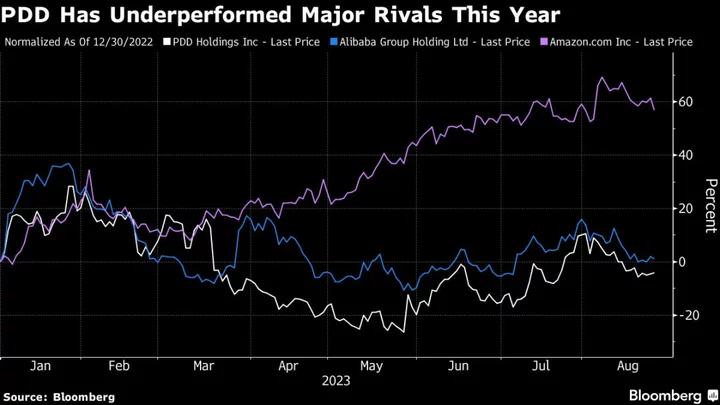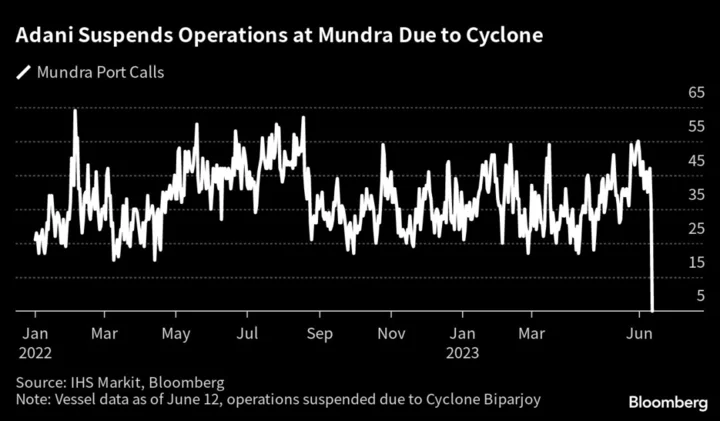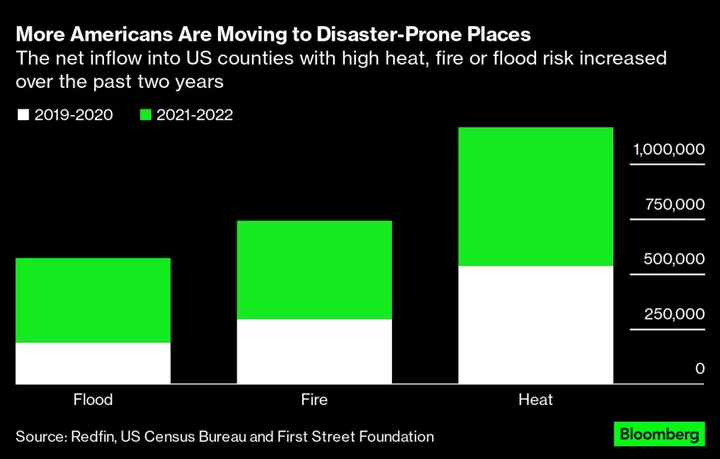PDD Holdings Inc. revenue rose a stronger-than-expected 66% after the company behind hit shopping app Temu spent to boost growth at home and abroad to counter a bumpy post-pandemic recovery.
Its shares climbed more than 12% in pre-market trading in New York after the e-commerce platform reported better-than-projected revenue of 52.3 billion yuan ($7.2 billion) in the June quarter, beating the average estimate of 43.3 billion yuan. Net income increased a faster-than-projected 47%.
PDD’s growth surpassed its Chinese peers and underscored how the company that once trailed far behind Alibaba Group Holding Ltd. and JD.com Inc. has in recent years used promotions and inroads into lower-tier cities to grab market share from more established rivals. It created Temu, featured with much fanfare during this year’s Super Bowl, to try and replicate that success abroad. Executives declined on Tuesday to get into specifics about Temu’s progress or financials, except to say the focus now was to fine-tune its strategy.
At home, Chinese consumer sentiment was improving, executives said, in defiance of warning signs of financial stress and a broad downturn across the world’s No. 2 economy.
“Our business is closely tied to the overall consumption market and we noticed continued improvement in the macro trends and also consumers’ increasing willingness to shop,” co-Chief Executive Officer Zhao Jiazhen said.
Mixed financial results from the country’s online commerce and media leaders have cast doubt over a recovery for the world’s biggest internet arena. This month, Alibaba and JD.com both reported faster-than-anticipated growth for the second quarter while social media giant Tencent Holdings Ltd. recorded sales and net income that missed analysts’ estimates.
In PDD’s case, increasingly fierce competition in China and aggressive strides overseas may pressure profitability.
PDD Soars as Results Show Strength and Resilience: Street Wrap
JD.com rolled out a $1.4 billion discount spree in March to capture new users, igniting a price war. Alibaba also launched a “value-for-money battle” to lure buyers and merchants. Investors worry that PDD’s aggressive spending — now a sector-wide phenomenon — will further hurt bottom-line growth.
As the price war heats up and Chinese consumption weakens, investors may find it increasingly hard to justify PDD’s valuation. The stock is trading at more than 19 times forward earnings, compared with nearly 11 times for Alibaba and over 12 for JD.com, according to data compiled by Bloomberg.
Amid intensifying rivalry at home, PDD is turning outward for growth, following the playbook employed by ByteDance Ltd.’s TikTok and fast-fashion phenom Shein. In September, PDD debuted its Temu bargains platform in the US, then quickly rolled it out to other places like Canada and Europe.
The results were “more resilient than expected considering the softening macro environment in China,” Citigroup analysts wrote after the report.
Morgan Stanley says PDD is “the only e-commerce play that can deliver alpha” in China, as the company outgrows peers because the monthly use of its app is increasing while Temu expands to more countries. Temu was ranked the top shopping app by downloads in the US, Australia and Germany over the past three months, according to market research firm Sensor Tower.
But so far, the fledgling platform has been a drag on margins. PDD acknowledged in its annual report last year that Temu requires “substantial” resources to grow. While traffic on the app has risen, it probably accounted for less than 1% of PDD’s sales in the second quarter, Bloomberg Intelligence analysts estimated.
What Bloomberg Intelligence Says
PDD’s non-GAAP operating margin in the second quarter likely narrowed from 34% a year ago as cost increases exceeded revenue growth. Marketing expenses surged 45% in 1Q amid increasing competition in China’s e-commerce market, and the increase probably continued in 2Q, countering profit gains from economies of scale gained with the expansion in operations. PDD might also have incurred higher personnel costs in 2Q to support the enlarged domestic and overseas operations, which would have cramped profitability.
PDD likely raised investment in Temu, its overseas e-commerce platform, as it enters new markets in Europe and Asia including Germany, France, Japan and South Korea. Yet Temu probably contributed less than 1% of the sales in 2Q, we estimate.
- Catherine Lim and Tiffany Tam, analysts
Click here for the research.
Temu is now locked in a lawsuit with Shein, alleging the rival violated antitrust laws by using threats and intimidation to block clothing manufacturers from working with the fast-rising upstart. Shein has also sued Temu in the US, alleging trademark and copyright infringement as well as “false and deceptive business practices.”
PDD has also drawn scrutiny over potential data security risks, after Google’s Android app store suspended downloads of its Chinese shopping app Pinduoduo while it investigates alleged malware in unsanctioned versions. Google didn’t mention Temu, which remains available to download.
Read more: Google Halts PDD App After Finding Malware in Some Versions
(Updates with shares and executives’ comments from the second paragraph)









